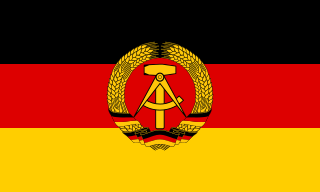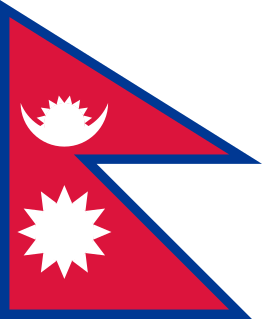
The Winter Olympic Games is a major international multi-sport event held once every four years for sports practiced on snow and ice. The first Winter Olympic Games, the 1924 Winter Olympics, were held in Chamonix, France. The modern Olympic Games were inspired by the ancient Olympic Games, which were held in Olympia, Greece, from the 8th century BC to the 4th century AD. Baron Pierre de Coubertin founded the International Olympic Committee (IOC) in 1894, leading to the first modern Summer Olympic Games in Athens, Greece in 1896. The IOC is the governing body of the Olympic Movement, with the Olympic Charter defining its structure and authority.

The 1984 Winter Olympics, officially known as the XIV Olympic Winter Games and commonly known as Sarajevo '84, was a winter multi-sport event held between 8 and 19 February 1984 in Sarajevo, Yugoslavia. It was the first Winter Olympic Games held in a Slavic language-speaking country, as well as the only Winter Olympics held in a communist country before the 2022 Winter Olympics in Beijing, China. It was the second consecutive Olympic Games to be so held, after the 1980 Summer Olympics in Moscow, Soviet Union.

The 1952 Winter Olympics, officially known as the VI Olympic Winter Games and commonly known as Oslo 1952, was a winter multi-sport event held from 14 to 25 February 1952 in Oslo, the capital of Norway.

The 1936 Winter Olympics, officially known as the IV Olympic Winter Games and commonly known as Garmisch-Partenkirchen 1936, were a winter multi-sport event held from 6 to 16 February 1936 in the market town of Garmisch-Partenkirchen, Germany. The country also hosted the 1936 Summer Olympics, which were held in Berlin. It was the last year in which the Summer and Winter Games both took place in the same country.

The 1964 Winter Olympics, officially known as the IX Olympic Winter Games and commonly known as Innsbruck 1964, was a winter multi-sport event which was celebrated in Innsbruck, Austria, from January 29 to February 9, 1964. The city was already an Olympic candidate, unsuccessfully bidding to host the 1960 Games. Innsbruck won the 1964 Games bid defeating the cities of Calgary in Canada and Lahti in Finland. The sports venues, many of which were built for the Games, were located within a radius of twenty kilometers around Innsbruck. The Games included 1,091 athletes from 36 nations, which was a record for the Winter Games at the time. Athletes participated in six sports and ten disciplines which bring together a total of thirty-four official events, seven more than the 1960. The luge made its debut on the Olympic program. Three Asian nations made their Winter Games debut: North Korea, India and Mongolia.
The 1972 Winter Olympics, officially the XI Olympic Winter Games and commonly known as Sapporo 1972, was a winter multi-sport event held from February 3 to 13, 1972, in Sapporo, Japan. It was the first Winter Olympic Games to take place outside Europe and North America.

The 1976 Winter Olympics, officially known as the XII Olympic Winter Games and commonly known as Innsbruck 1976, was a winter multi-sport event celebrated in Innsbruck, Austria, from February 4 to 15, 1976. The Games were awarded to Innsbruck after Denver, the original host city, withdrew in 1972. This was the second time the Tyrolean capital had hosted the Winter Olympics, having first done so in 1964.
The 1976 Winter Olympic Games cross-country skiing results. The women's 3 × 5 km relay was replaced by a 4 × 5 km relay at these games.
Nordic combined at the 1972 Winter Olympics consisted of one event, held from 4 February to 5 February. The ski jumping portion took place at Miyanomori Ski Jump Stadium, while the cross-country portion took place at Makomanai Park.

East Germany competed at the 1972 Winter Olympics in Sapporo, Japan.

East Germany competed at the Winter Olympic Games for the last time at the 1988 Winter Olympics in Calgary, Alberta, Canada. Following German reunification in 1990, a single German team would compete in the 1992 Winter Olympics.

Japan was the host nation for the 1972 Winter Olympics in Sapporo. It was the first time that Japan had hosted the Winter Olympic Games, but second time overall after the 1964 Summer Olympics in Tokyo. It was also the first Winter Olympic Games held in Asia. The host nation sent 90 athletes, consisting of 70 men and 20 women, along with 20 officers. The flag bearer for the Japanese team, Mineyuki Mashiko did not participate in the game, but instead held the position of team manager.

Nepal sent a delegation to compete at the 2002 Winter Olympics in Salt Lake City, United States from 8–24 February 2002. This was Nepal's first time participating in a Winter Olympic Games. The delegation consisted of a single cross-country skier, Jay Khadka. In the men's sprint he finished in 70th place, and in the men's 2 × 10 kilometre pursuit he finished in 79th place, and did not advance to the finals of either event.
For the 1936 Winter Olympics in Garmisch-Partenkirchen, Germany, a total of six sports venues were used. Alpine skiing events took place for the first time and were held in three different locations. Riessersee held the speed skating and some of the ice hockey matches while the bobsleigh events took place south of the lake. The ski jump and its neighboring stadium played host to the cross-country skiing, Nordic combined, and ski jumping events. Even though figure skating and some of the ice hockey matches took place outdoors at the ice stadium, the ice itself was artificially refrigerated to prevent ice thawing.
For the 1972 Winter Olympics in Sapporo, Japan, a total of twelve sports venues were used. A thirteenth venue which was a reserved luge course was constructed, but never used in actual competition. Construction on all but of the venues used took place between 1968 and early 1971 in time for the test events. The Tsuskisamu Indoor Skating Rink was not completed until late 1971 or early 1972 because the number of teams scheduled to compete at the 1972 Games was not known. At the actual luge venue used, a malfunctioning starting gate during the first run led to the results being cancelled and rerun being ordered. The results of this event led to the only tie in Olympic luge history. The ski jumps at Miyanomori and Okurayama served as host venues for the FIS Nordic World Ski Championships thirty-five years later.

For the 1976 Winter Olympics in Innsbruck, Austria, a total of eight sports venues were used. The games were originally awarded to Denver, Colorado in the United States in 1970, but they withdrew in the wake of Colorado residents voting against it for environmental and cost reasons in November 1972. This led to the International Olympic Committee opening up the bids for the games again, eventually awarding them to Innsbruck in February 1973. The Austrian city, having hosted the Winter Olympics in 1964, was in the process of having the venues used for those Games before Denver's with clear cutting of the alpine skiing venues, lessening of the amount of cross-country skiing routes, upgrading the ski jumps, adding lighting in the indoor sports arena to accommodate color television, and the construction of a combination bobsleigh and luge track. After the 1976 Games, the venues have remained in use, hosting events in Nordic skiing and the sliding sports. They hosted some of the events for the Winter Universiade in 2005 and seven of the eight venues served as host for the first Winter Youth Olympic Games in 2012.

For the 1980 Winter Olympics in Lake Placid, New York, United States, a total of seven sports venues were used. All five of the venues used for the 1932 Winter Olympics were also used at the 1980 Winter Games with adjustments. These adjustments included electronic scoreboards, increased refrigeration, and the addition of a separate luge track. This was the last Winter Olympics where there were separate bobsleigh and luge tracks. The closest finish in Olympic history in cross-country skiing led skiing officials to time future events in hundredths of a second rather than tenths of a second. This would also apply to biathlon events. Eric Heiden won five gold medals at the speed skating oval while the "Miracle on Ice" took place between Americans and Soviets at the Olympic Center. In the late 1990s, the luge track was demolished and a new combination track was constructed in time for the only Winter Goodwill Games held. The sliding venue was named to the American National Register of Historical Places in February 2010.

Germany competed at the 2022 Winter Olympics in Beijing, China, from 4 to 20 February 2022.













